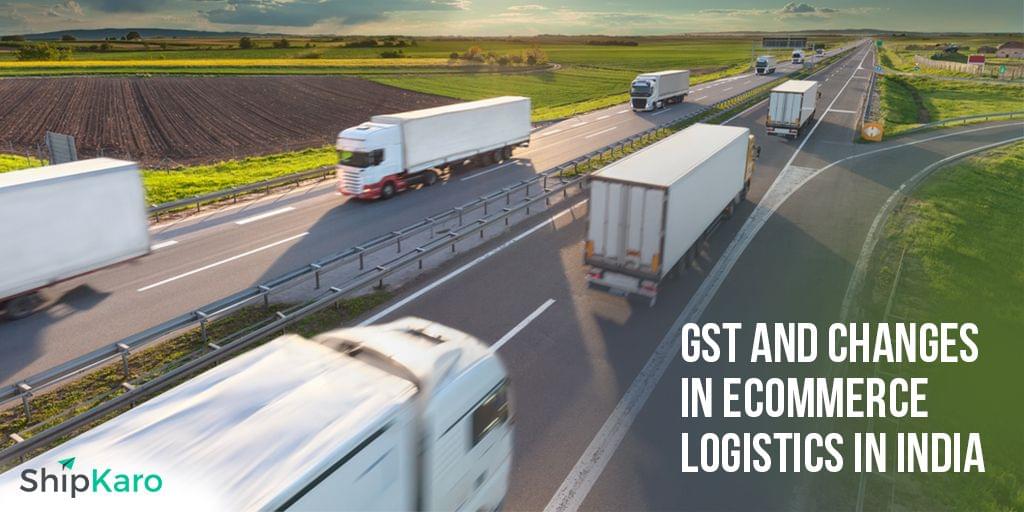The implementation of the Goods and Services Tax (GST) was one of the biggest tax reforms in India. One year since the implementation, the change has paved the way for a new era for businesses and to the public domain in general. For the logistics, which was on a growth spurt with the onset of several new online ventures, the uniform tax regulation has come as a huge relief from the complex state-based tax structures and has driven a shift in warehouse strategies. Here is a list of 7 ways in which GST has changed the e-commerce logistics in India:
- Uniform Tax
With the implementation of GST, there is no longer a difference between inter-state and intra-state sales, creating a common market throughout the country. This ensures a cumulative tax incidence with both the transactions being taxed equally. The uniformity has therefore eradicated the need for inter-state check posts, significantly altering and speeding ecommerce logistics in India. - Central Warehouse
Uniform tax rates lead tochange in warehouse management strategies for ecommerce companies. Instead of managing multiple warehouses, several companies have shifted to a large central warehouse to mitigate the administration cost of multiple small warehouses. However, this change seems to be industry specific and depends on several factors like product shelf life and demand. For instance, multiple warehouse system still prevails in FMCG sector and industries with consumer durables when compared to industries like construction apparatus, several smaller warehouses have already been consolidated into one major warehouse. The difference is majorly dependent on the predictability of the product demand and the necessity of timely customer servicing. - Better Supply Pattern
Change in warehouse management has forced ecommerce logistics in India to adapt to this new advanced warehouse pattern. This has consequently changed the pattern of supply assignments, supplier channels and even led to a change in transport routes. This has streamlined the warehouse management and has created an efficient supply chain management. - Speedy Deliveries
The eradication of a multitude of taxes at border check posts like entry taxes, local body taxes etc with the implementation of GST has ensured a smooth flow of goods within the country. Removal of state-level VAT check-posts has resulted in quicker turnaround for transportation vehicles and facilitated more efficient ecommerce logistics in India. - Reduced Final Price
Reduced transit times due to the removal of multiple taxes at border check posts consequently leads to a reduction in delivery time. This brings in a reduction in distribution charges thereby lowering the final price of the goods. - Low Operation Cost
Previously, the interstate taxation system forced companies to maintain multiple warehouses in various states along with multiple forwarding agents. GST implementation has reduced these longer supply chains, thus making the whole process cheaper and more efficient for ecommerce logistics in India. However, the change has led to several immediate expenses like the costs related to technologicalupgradation , upskilling of employees, etc. However, these expenses are short termed and the reduction in transit time and decrease in the supply chain is expected to reduce the overall cost of operation in possible future. - Digitized Processes
A new set of tax reforms will automatically mean a new set of compliance requirements. Consequently, companies have now adopted new ERP accounting systems and inventory management systems to cope up with the change in taxation systems. Through the digitization of the whole process, there has been a significant decrease in paperwork, saving time and resources.
In conclusion, GST implementation has deeply affected the ecommerce logistics in India, paving the way for growth in the industry. While there are companies that are still coping with the changes in technological implementation, these pains are seemingly short lived. Overall, the impact of GST on ecommerce logistics in India has been positive




Leave a Comment